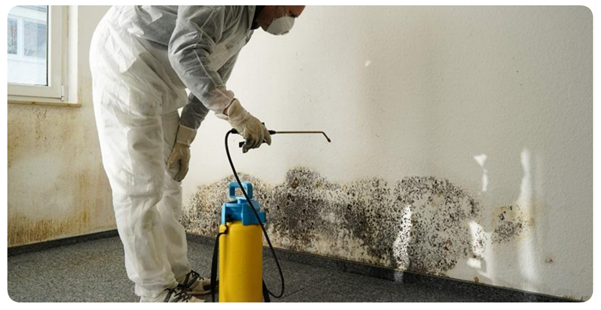How to Prepare for Professional Painting Services in Dubai
Preparing for professional painting services in Dubai ensures a smooth process and high-quality results. Whether you’re renovating your home or updating your office, proper preparation can make a significant difference in the outcome of your painting project. This article provides a step-by-step guide to help you prepare effectively for professional painting services in Dubai.
1. Define Your Project Goals
Before you start preparing for Professional Painting services in Dubai, clearly define your project goals:
- Scope of Work: Determine whether you need interior, exterior, or both types of painting. Specify the areas and surfaces to be painted.
- Type of Paint: Decide on the type of paint you prefer, such as eco-friendly, water-resistant, or high-gloss options.
- Color Choices: Select your colors and finishes. Consider consulting with a color expert if you need help choosing the right shades.
- Special Requirements: Identify any additional needs, such as decorative finishes, texture work, or color matching.
Having a clear understanding of your goals will help you communicate your needs effectively to the painting contractor.
2. Research and Select a Reputable Painting Contractor
Finding the right painting contractor is crucial for a successful project. Follow these steps to select a reputable service:
- Online Research: Look up painting companies in Dubai using relevant keywords. Review their websites for information about their services, portfolio, and contact details.
- Social Media: Check platforms like Facebook, Instagram, and LinkedIn for company profiles, customer reviews, and project examples.
- Local Directories: Explore local business directories and review websites like Yelp and Google My Business for top-rated painting services.
- Recommendations: Seek recommendations from friends, family, and colleagues for trusted contractors.
Once you have a shortlist, verify their credentials and experience to ensure they are capable of delivering high-quality work.
3. Clear and Protect Your Space
Properly preparing your space is essential to protect your belongings and ensure a clean work area:
- Remove Furniture: Clear the room of all furniture and items. If removal isn’t possible, move items to the center of the room and cover them with drop cloths.
- Cover Floors: Protect your flooring with drop cloths or plastic sheeting to prevent paint spills and splatters.
- Remove Wall Fixtures: Take down any wall hangings, mirrors, and fixtures. Remove or cover electrical outlets and switches to keep them free of paint.
- Clean Surfaces: Clean the walls, ceilings, and other surfaces to be painted. Dust, grease, and grime can affect paint adhesion and finish.
A clean and uncluttered space ensures that the painting process is efficient and the final result is of high quality.
4. Communicate Your Needs and Expectations
Effective communication with your painting contractor is key to a successful project:
- Discuss Project Details: Clearly explain your project requirements, including the scope of work, type of paint, color choices, and any special requests.
- Review the Contract: Ensure that the contract includes all details of the project, including scope, materials, timeline, and cost. Address any concerns or questions before signing.
- Set a Timeline: Agree on a timeline for project completion and any milestones. Make sure both parties understand and agree on the schedule.
Clear communication helps align expectations and avoids misunderstandings during the painting process.
5. Prepare for the Painting Day
As the painting day approaches, make final preparations to ensure a smooth start:
- Confirm Arrangements: Confirm the date and time with your contractor. Ensure that they have access to the property and any necessary keys or security codes.
- Secure Pets and Children: Keep pets and children away from the work area to ensure their safety and avoid disruptions.
- Ventilation: Ensure that the area is well-ventilated to allow for proper drying and to minimize fumes. Open windows and doors if possible.
Preparing your space and securing the area helps the painting process proceed efficiently and safely.
6. Understand the Painting Process
Familiarize yourself with the painting process to know what to expect:
- Surface Preparation: The contractor will start by preparing the surfaces to be painted. This includes cleaning, sanding, and priming as needed.
- Painting: The actual painting process will follow, typically involving multiple coats for optimal coverage and finish.
- Drying and Curing: Allow sufficient time for the paint to dry and cure. This is important for achieving the best finish and durability.
Understanding the process helps you anticipate each stage and ensures that you are prepared for any necessary adjustments.
7. Address Potential Issues in Advance
Addressing potential issues before the project starts can help prevent delays and complications:
- Repair Damages: If there are any pre-existing damages or imperfections on the walls, discuss them with the contractor. Ensure that they are addressed during the preparation phase.
- Plan for Disruptions: Be prepared for some disruption during the painting process, such as noise and odors. Plan accordingly to minimize inconvenience.
Proactively addressing issues helps ensure that the project runs smoothly and that any unexpected problems are handled promptly.
8. Monitor the Project Progress
During the painting project, stay engaged to ensure that everything is going according to plan:
- Regular Check-Ins: Maintain regular communication with the contractor to get updates on progress and address any concerns.
- Inspect Work: Periodically inspect the work to ensure it meets your expectations. Address any issues as soon as they arise to avoid delays.
Monitoring the progress helps ensure that the project stays on track and that the final result meets your standards.
9. Final Inspection and Completion
Once the painting project is complete, conduct a thorough final inspection:
- Check Quality: Examine the painted surfaces for any imperfections, such as uneven coverage, drips, or missed spots.
- Address Touch-Ups: If needed, request any touch-ups or corrections to ensure a flawless finish.
- Review Clean-Up: Confirm that the contractor has cleaned up the work area and removed any debris or leftover materials.
A final inspection ensures that the work meets your expectations and that any necessary adjustments are made.
10. Provide Feedback and Payment
After the project is completed to your satisfaction, follow these final steps:
- Provide Feedback: Share your feedback with the contractor. Positive feedback helps them understand what went well, and constructive feedback can improve their services.
- Complete Payment: Settle any remaining payments according to the terms of the contract. Ensure that you receive a receipt or confirmation of payment.
Providing feedback and completing payment wraps up the project and helps maintain a good relationship with the contractor.
Conclusion
Preparing for professional painting services in Dubai involves careful planning and clear communication. By defining your project goals, selecting a reputable contractor, protecting your space, and understanding the painting process, you can ensure a smooth and successful painting project. Proper preparation helps achieve high-quality results, enhancing the beauty and value of your property.



